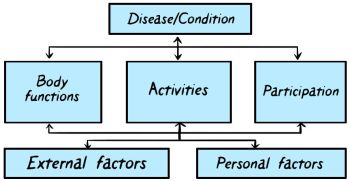Waarmee kunnen we u helpen?
SHE model

The Subjective Health Experience (SHE) model provides a simple, quick, and reliable way to understand how patients perceive their health. This cross-disease model, it combines a ladder score alongside a segmentation approach.
The SHE model assesses Subjective Experienced Health and its two main psychological determinants, perceived control and acceptance. Based on high or low scores on acceptance and perceived control, the model stratifies patients into four segments.
Subjective experience of health is defined as an individual’s experience of physical and mental functioning. The position on the ladder reflects the level of experience health. When combined with biomedical outcomes, the SHE model provides a fuller picture of a patient's health.
Self management support programs
Supportive care can thus be better tailored to the needs of the patient. The underlying principle is that this will lead to better care outcomes, higher patient satisfaction, and more efficient healthcare. Especially when healthcare provider and patient make decisions together.
Perceived control
The belief of the individual that his/her health status, as perceived by him/herself, can be influenced of controlled by him/herself or by others.
3 questions on Perceived Control
- ‘I have the feeling that I have grip on my health condition.’
- ‘My health condition is to great extent in my own power.’
- ‘I have a lot of influence on my health condition.’
Acceptance
The feeling of the individual that his/her health status and the possible constraints on functioning are acceptable and fitting for him/her as a person.
3 questions on Acceptance
- ‘I am at peace with my health condition.’
- ‘The way in which I am functioning physically and mentally, is acceptable to me.’
- ‘I accept my health condition the way it is.’
Segmentation model

Acceptance and percieved control
- 4 segments of health-care consumers, with each segment representing a specific type of individual, with different needs for support
Our scientific research

Optimizing personalized care in lymphedema
Lymphedema significantly impacts daily life, affecting mobility, causing recurrent infections, and leading to pain, depression, and anxiety. Selfmanagement is a key component of the treatment. The Lymph-ICF questionnaire helps define therapy and evaluate long-term outcomes.
We compared the SHE model with the Lymph-ICF as outcome measures of our inpatient treatment program. In conclusion:
- The SHE model complements the Lymph-ICF
- During intensive treatment, a shift of 47% of the patients to a higher segment was observed
- Segmenting patients based on acceptance and perceived control enables more personalized supportive care
Receive scientific research SHE model?
The research on the SHE model is part of the doctoral thesis of Ad Hendrickx, physical therapist. You can use the link below to request to receive the thesis. The specific research on SHE model is described in chapter 6.
Important publication by Prof. Dr. Sjaak Bloem (developer of the SHE model)
Contact information
Ad A Hendrickx, Pt, PhD.
a.hendrickx@nijsmellinghe.nl
Center of Expertise for Lymphovascular Medicine, Nij Smellinghe Hospital, Drachten, The Netherlands.
Member European Reference Network ERN (VASCERN PPL)
*The Center of Expertise for Lymphovascular Medicine (ECL) at Nij Smellinghe Hospital in Drachten, The Netherlands, is a tertiary referral center for diagnosing and treating patients with (complex) primary and secondary lymphedema.
Sources

